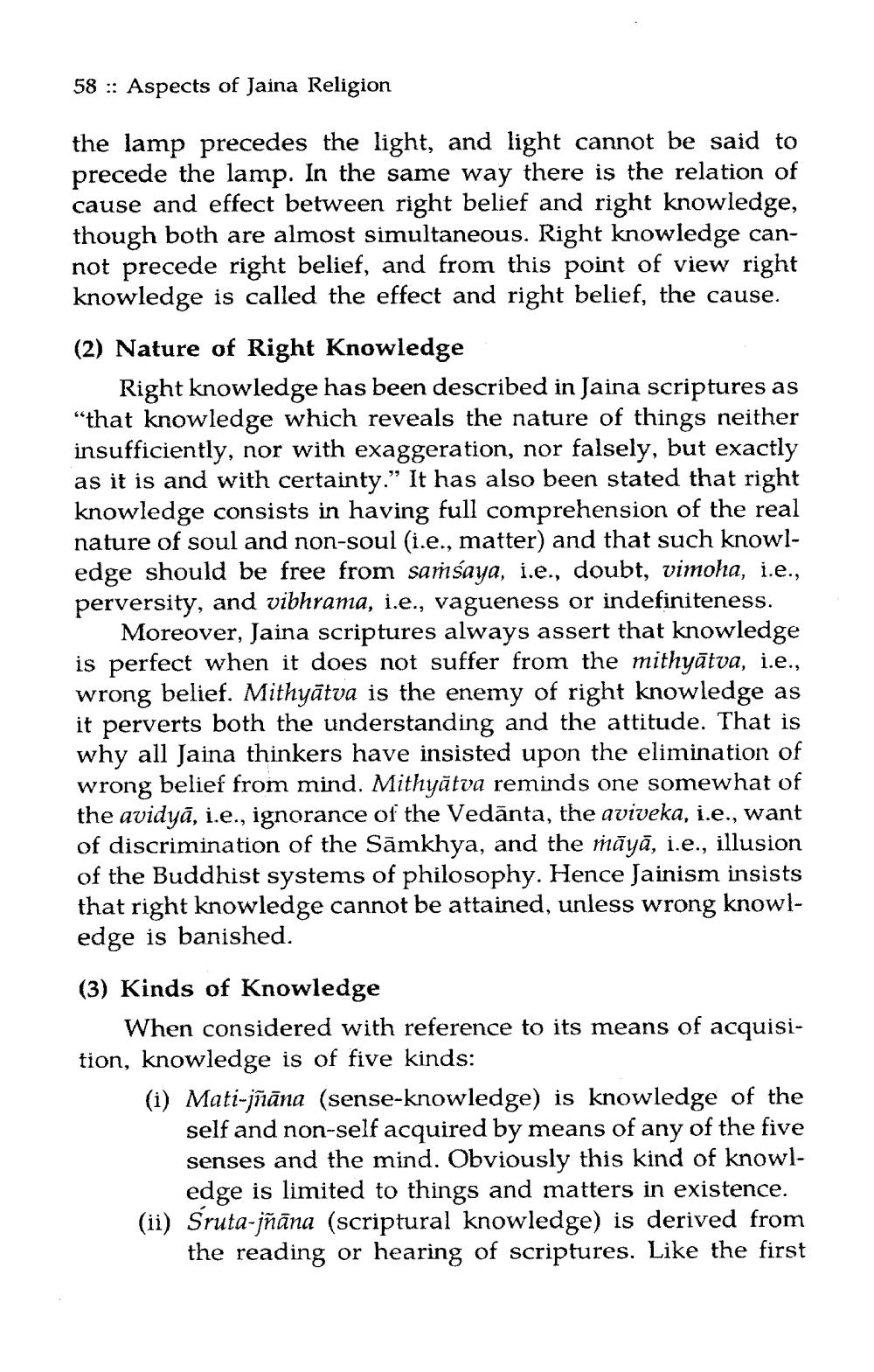________________
58 :: Aspects of Jaina Religion
the lamp precedes the light, and light cannot be said to precede the lamp. In the same way there is the relation of cause and effect between right belief and right knowledge, though both are almost simultaneous. Right knowledge cannot precede right belief, and from this point of view right knowledge is called the effect and right belief, the cause.
(2) Nature of Right Knowledge
Right knowledge has been described in Jaina scriptures as "that knowledge which reveals the nature of things neither insufficiently, nor with exaggeration, nor falsely, but exactly as it is and with certainty.” It has also been stated that right knowledge consists in having full comprehension of the real nature of soul and non-soul (i.e., matter) and that such knowledge should be free from samsaya, i.e., doubt, vimoha, i.e., perversity, and vibhrama, i.e., vagueness or indefiniteness.
Moreover, Jaina scriptures always assert that knowledge is perfect when it does not suffer from the mithyātva, i.e., wrong belief. Mithyātva is the enemy of right knowledge as it perverts both the understanding and the attitude. That is why all Jaina thinkers have insisted upon the elimination of wrong belief from mind. Mithyātva reminds one somewhat of the avidyā, i.e., ignorance of the Vedānta, the aviveka, i.e., want of discrimination of the Sāmkhya, and the māyā, i.e., illusion of the Buddhist systems of philosophy. Hence Jainism insists that right knowledge cannot be attained, unless wrong knowledge is banished.
(3) Kinds of Knowledge
When considered with reference to its means of acquisition, knowledge is of five kinds:
(i) Mati-jñāna (sense-knowledge) is knowledge of the
self and non-self acquired by means of any of the five senses and the mind. Obviously this kind of knowl
edge is limited to things and matters in existence. (ii) Sruta-jñāna (scriptural knowledge) is derived from
the reading or hearing of scriptures. Like the first




